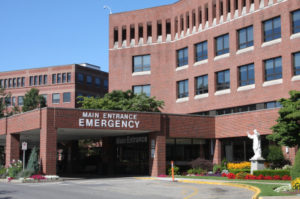Medicare Announces Readmissions Penalties
 Medicare will impose financial penalties in FY 2015 on the majority of U.S. hospitals for excessive patient readmissions.
Medicare will impose financial penalties in FY 2015 on the majority of U.S. hospitals for excessive patient readmissions.
In all, 2610 hospitals face penalties that range from one one-hundredth of one percent to three percent of all Medicare payments. Last year, the maximum penalty was two percent.
The majority of hospitals in 29 states will be penalized and 39 hospitals face the maximum penalty of three percent. Overall, the penalties will amount to $428 million. Many hospitals will be penalized even though they reduced their readmissions in the past year.
Medicare’s hospital readmissions reduction program was mandated by the Affordable Care Act in the belief that penalizing hospitals for what were considered avoidable readmissions would spur them to take steps to prevent such readmissions. Readmissions cost Medicare $26 billion a year, of which $17 billion is considered unavoidable.
Concerns have been raised that the readmissions penalties are unfair to safety-net hospitals because they serve more low-income patients with more complex medical problems and who, after discharge, face financial and logistical challenges during their recovery that make them more likely to require readmission. Some studies have verified this view and some groups – including the Medicare Payment Advisory Commission (MedPAC) – have called on Congress to revise the program with this consideration in mind.
For a closer look at FY 2015’s readmissions penalties, including links to a file that lists individual hospital penalties nation-wide, see this Kaiser Health News report.







